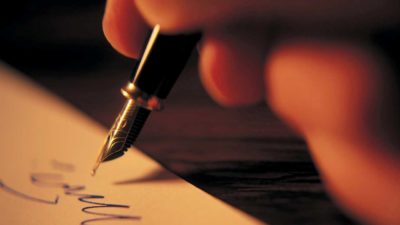
When my wife and I floated Pec Repertory Theatre through the 1980s, we observed that subscribers high on our list of members were from the medical profession. Professors Koye Ransome-Kuti and Deji Femi-Pearse, with their lovely wives, immediately come to my mind. Outside Akoka and Idira-Aba, at Ikoyi, was Dr. Marianne Abimbola Silva, mother of the actress Joke. Then there was Dr. M.A. Majekodunmi, our landlord at JK Randle Hall, a public trust, built on land, granted by the only Prime Minister we ever had, Sir Abubakar Tafawa Balewa, whose official residence was right across the road. Late at one point in our repertoire, the old doctor retrieved from his archives the manuscript of which he had written, while serving as a young medical officer in the Colonial Service at Calabar.
At the opening night, family and friends, along with members in general, saw for the first time this hidden part of the old man of medicine. Finally, the dentist Franz Kuboye treated members to jazz as part of a series of concerts, conducted by the masters Steve Rhodes, Akin Euba and Laz Ekwueme. It was all very puzzling though cheering to us at our small theatre of resident players, mainly from Ghana, with Jab Adu as our Associate Director, and then Bayo Oduneye who went on to take over the National Theatre.
Dr. Folabi Olumide we knew later on a different set. He taught our daughter Ebiere medicine at Idira-Aba; lecturer and student, it turned out, liked playing the piano. He also had great admiration for poetry much of which he extended to one poet he came to know in person. He reminded me of a diplomat friend, his late cousin Wale. Both belong to a Renaissance family, again from that place on a rock called Abeokuta, celebrated for producing spectacular performers on various platforms.
Professor Olumide, as a surgeon, before retirement, plied his scalpels here and in Saudi Arabia with both hands. But to perform his literary exercises in his spare time, he only had to hold his pen in one hand. You guess which. I also leave the reader to work out which took more of his time, writing a poem at his desk or opening up a patient on the operating table.
By way of postscript, since Folabi himself hints at it, let me disclose here one great show he wanted to stage at the Lagos State University in 1988. The new institution of higher learning had awarded Chinua Achebe, Wole Soyinka and one JP Clark the honorary degree of D.Lit. Chinua, who was my guest from Nsukka, arrived with me at the venue early one morning, ahead of Wole coming in from Abeokuta.
Then came a sniper shot, scattering everybody. Convocation had been cancelled, summarily, by order of the Visitor, exercising his power as Military Governor of Lagos State. No reason was given. Some 25 years later, I asked the sailor, ashore in Abuja, why he had issued the command. He couldn’t recall such an unfortunate incident, he swore; though he well remembered other matters, concerning the first Vice-Chancellor of the place. Scrolls and robes still rest today in a well-crafted calabash bowl I keep on top of my wardrobe.
In the light of this theatre history, not known to the young who believe they began it all today, I can now say there truly is something special between medical doctor and poet that draws one to the other, a pull not known to me with the other professions and disciplines, except perhaps the few that go to space. So doctors don’t leave their theatre of care just to go and relax in this other theatre, where the playwright brings all the arts together to look at the lot of man for the audience to watch with pleasure, and do some thinking of their own. Arguably, like the priest, these two see the human condition from both ends, at its most exalted and depressed.
I am not claiming here Folabi Olumide as our own John Keats. All I am doing is toasting him at 80 for a double act. I therefore, invite you to join me in that spirit. These are private pieces brought out at last from the closet. The best of them, especially in the Eros and Agape drawers, are songs written in ancient and modern modes for drum, organ and saxophone. All cheers, therefore, to our young man of four scores, as we wish him more seasons of performance in great form.
GUARDIAN
END

Be the first to comment